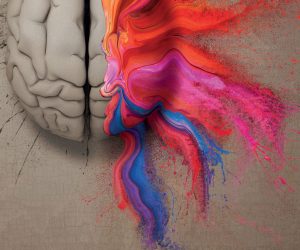From Lab to Clinic – Pathways to translational brain-machine interfaces for rehabilitation
The University of Reading will host a focused one-day symposium in September 2018, aiming to bring together researchers in brain-machine interfaces (BMIs) and clinical experts in rehabilitation to discuss the pathway and the challenges for widespread clinical adoption of BMIs. This event will help early career researchers identify how to bring their BMI research into clinical application. The symposium will include users of BMI technology as well as representatives from funding bodies to provide an all-inclusive and informative discussion on adapting and translating existing research outputs.
Accepted abstracts will be presented in poster format and some early career researchers will be selected to give an oral presentation. Click here to visit the abstract submission page for more details.
Candidates who present a poster will be requested to take part in a lightning round, where they will received 1 minute to present their work to the symposium attendees.
The event includes a panel discussion by funding body representatives (MRC), and researchers in BMI, to discuss questions regarding how to fund and conduct research in clinical environments – especially from an early career point of view. Questions to the panel can be submitted in advance with registration or during the day. Lunch and coffee/tea throughout the day will be provided, and there will be a networking wine and canapé reception at the end of the day.
Please consider submitting your work or coming along on the day.
Click here to submit your abstract.
This event is wheelchair accessible.
Please contact ioannis.zoulias@reading.ac.uk if you have any enquiries.
About the symposium
Organised by Ioannis Zoulias and Orla Fannon of the University of Reading, UK, this symposium aims to address the key challenges in the design and adoption of BMIs in the clinic, and highlight the pathways to success for researchers working with BMIs for rehabilitation. The meeting will explore the viewpoints of the operators (i.e clinicians) and the end users (i.e patients) of BMI technologies, focusing on the key considerations for designing BMIs that are adaptable to the variation in physiologies across disabilities, and suitable for the specific needs of end-users.
The symposium will bring together patients, researchers in cutting-edge BMI technology, clinicians in rehabilitation, and experts on the physiology of motor disabilities. The primary goal is to identify the pathways for early career researchers to translate their BMI research into a clinical solution. The secondary goal is to foster new collaborations between clinicians and researchers who are in the early stages of BMI development. The aim is to facilitate the formation of long-lasting collaborations, and subsequently to create an increase in widespread use of clinical BMIs for rehabilitation.
The symposium will host talks by established BMI researchers, and clinicians, who will discuss the most promising BMIs for motor rehabilitation, and share their experiences in designing BMIs and transferring them to a clinical setting. A panel discussion between the audience, invited speakers, clinicians, representatives from funding bodies, patients, and academic researchers, will explore the challenges and opportunities for transferring BMIs to the clinic. The symposium is an excellent event to network with BMI experts, clinicians and other early careers researchers in BMI, and to receive valuable input on the translational potential, limitations, and advantages of your research within a clinical perspective.
Confirmed Speakers
- Miguel Nicolelis, Duke School of Medicine Professor in Neuroscience, Duke University, North Carolina, USA
- Dario Farina, Chair in Neurorehabilitation Engineering, Imperial College London, UK
- Claire Guy, Principal Physiotherapist in Spinal Injuries, Rookwood Hospital, UK
- Ian Daly, Lecturer of Computer Science, University of Essex, UK
Confirmed Panellists
- Robin Gibbons, Senior Research Associate, Aspire CREATe Group, University College London, UK
- Medical Research Council, UK

